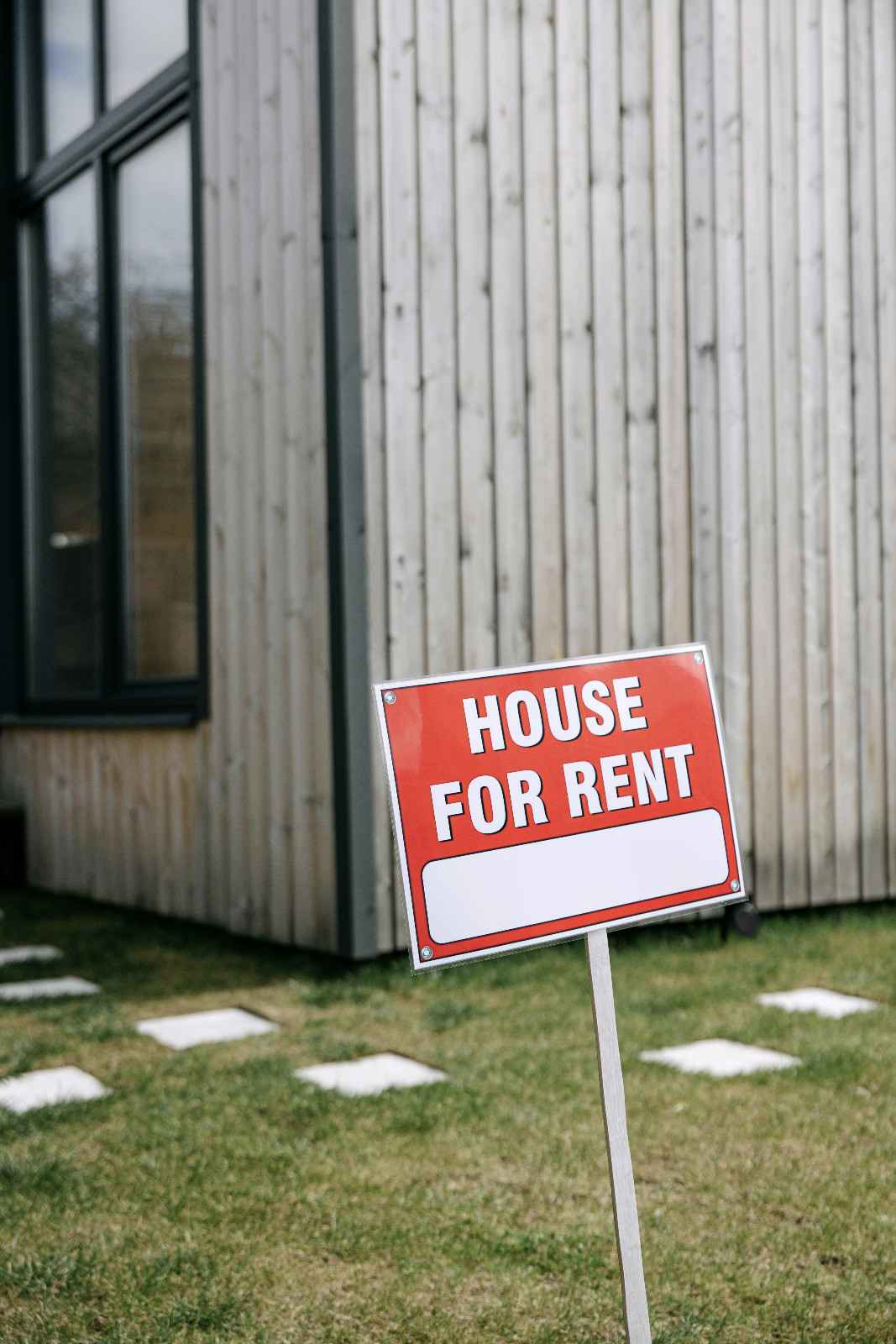The real estate market is a relatively safe way to build cash flow – and one of the best ways to get exposure to it is through investing in rental properties. The average full-time real estate investor, according to RealWealth, makes about $100K annually. With the cost of rent expected to increase by 4.8% in 2025, now might be a great time to get started with rental property investing.
However, securing the right financing is critical.
Unlike traditional mortgages for primary residences, rental property loans come with unique structures and requirements. Lenders perceive investment properties as higher risk, leading to stricter criteria.
In this article, we’ll show you how rental property loans work and give you a guide on the 7 best types of rental property loans.
How Rental Property Loans Work
Rental property loans differ significantly from traditional mortgages used to finance primary residences.
Some lenders view investment properties as higher-risk ventures, which translates to stricter lending criteria and (usually but not always) elevated interest rates. Unlike loans for personal homes — where lenders prioritize the borrower’s income, employment history, and debt-to-income ratio — rental property financing shifts the focus to the property’s income-generating potential. This means lenders analyze projected rental income, local market rents, and occupancy rates to determine whether the property can generate enough cash flow to cover mortgage payments. This is especially true for DSCR loans, which rely almost entirely on a property’s ability to generate income.
Loan requirements vary by lender, but most share common benchmarks:
- Borrowers typically need a minimum credit score of 620 to qualify, though higher scores secure better terms.
- Down payments are also larger, often 20–25% of the purchase price, as lenders mitigate risk by ensuring borrowers have substantial equity upfront.
- Loan terms are usually 30 years and fully amortized, providing predictable monthly payments.
- Lenders may mandate cash reserves (e.g., 6–12 months of mortgage payments) to safeguard against vacancies, repairs, or fluctuations in rental income.
By emphasizing the property’s profitability rather than the borrower’s personal finances, these loans cater to investors aiming to build wealth through real estate — but they demand careful financial planning to meet the heightened eligibility standards.
How to Choose the Best Rental Property Loan

7 Best Rental Property Loan Options for Real Estate Investors
1. DSCR Loans (Debt-Service Coverage Ratio Loans)
Best for: Investors who want to qualify based on rental income rather than personal income.
How it works:
- The lender evaluates the property’s rental income instead of personal income.
- No tax returns or W-2s required—qualification is based on DSCR (NOI / mortgage debt).
- Minimum DSCR requirement typically 1.1-1.25x (Defy Mortgage offers flexible options).
- Good option for self-employed investors or those scaling a portfolio.
Pros:
- No personal income verification.
- Works well for multiple investment properties.
- Can finance LLC-owned properties.
Cons:
- May require a larger down payment (20-25%).
- Interest rates slightly higher than conventional loans.
2. Bank Statement Loans
- Best for: Self-employed investors who don’t have W-2 income or traditional tax documentation.
- How it works:
- Instead of tax returns, lenders analyze 12-24 months of bank deposits to verify income.
- Works well for entrepreneurs, freelancers, and self-employed investors.
- Available for single-family rentals, condos, and multifamily properties.
- Pros:
- Allows investors to use actual cash flow, not reported taxable income.
- No need for employment verification or W-2s.
- Flexible underwriting standards.
- Cons:
- Higher interest rates compared to conventional loans.
- May require 10-20% down.
3. HELOC (Home Equity Line of Credit) for Rental Properties
- Best for: Investors looking to leverage existing equity to fund additional purchases.
- How it works:
- A revolving credit line secured by the equity in an investment property.
- Can be used for down payments, renovations, or other investments.
- Loan amounts up to 75-80% of home equity.
- Pros:
- Access to cash without selling an asset.
- Interest rates lower than private loans.
- Flexible repayment options.
- Cons:
- Variable interest rates may increase costs over time.
- Can put existing property at risk if payments aren’t made.
4. Conventional Loans
- Best for: Investors with strong credit scores and steady income.
- How it works:
- Offered by banks and credit unions.
- Backed by Fannie Mae and Freddie Mac.
- Typically requires 20-25% down for investment properties.
- Best rates available for borrowers with 700+ credit scores.
- Pros:
- Lower interest rates than non-QM loans.
- Long-term stability with fixed rates.
- Cons:
- Strict underwriting guidelines.
- Borrowers limited to a certain number of financed properties.
5. Private & Hard Money Loans
- Best for: Investors looking for short-term financing or fix-and-flip opportunities.
- How it works:
- Loans provided by private lenders, not banks.
- Higher interest rates (8-12%) but faster approvals.
- Shorter loan terms (typically 6-24 months).
- Pros:
- Fast approval and funding.
- Ideal for short-term holds or BRRRR strategy.
- Cons:
- High interest rates and fees.
- Requires a strong exit strategy.
6. FHA Loans

- Best for: New investors who are willing to live in the property for at least a year before renting it out.
- How it works:
- FHA loans are government-backed mortgages designed for primary residences but can be used to buy multifamily properties (up to four units) if the borrower lives in one unit for at least 12 months.
- Requires a 3.5% down payment with a credit score of 580+
- Allows investors to house hack.
- Loan terms are typically 30 years, fixed rate.
- Mortgage insurance premiums (MIP) are required.
- Pros:
- Low 3.5% down payment makes it easier to get started.
- Lenient credit requirements compared to conventional loans.
- Allows purchase of duplexes, triplexes, and fourplexes, providing rental income.
- Fixed interest rates offer long-term stability.
- Cons:
- Must live in the property for at least one year.
- Mortgage insurance premiums (MIP) add to costs.
- FHA loan limits may restrict options in high-cost markets.
- Not ideal for scaling quickly as an investor due to owner-occupancy rules.
7. Foreign National Loans
Best for: Non-U.S. citizens looking to finance U.S. rental properties without a Social Security number or U.S. credit history.
- How it works:
- Designed for non-residents investing in U.S. real estate.
- No U.S. credit history or tax returns required.
- Requires a 25-30% down payment and proof of income/assets from abroad.
- Loan terms are typically 30 years, fixed or adjustable rates.
- Some lenders offer DSCR-based options, qualifying borrowers based on rental income.
- Pros:
- Allows foreign investors to buy U.S. rental properties.
- No U.S. credit score required.
- Long-term financing with fixed or adjustable rates.
- Cons:
- Higher down payments and interest rates than domestic loans.
- Some lenders require 6-12 months of cash reserves.
- May involve extra fees or foreign banking requirements.
Final Thoughts: Secure the Right Rental Property Loan
Whether you’re a first-time investor or scaling a large portfolio, choosing the right loan is crucial for maximizing cash flow and building long-term wealth.
Defy Mortgage offers flexible loan solutions tailored for real estate investors, including DSCR loans, bank statement loans, and HELOCs. We’re an experienced lender that works with borrowers with a variety of backgrounds. If you’re interested in securing a rental property loan and have a property in mind, give us a call and we’ll walk you through your options.
FAQs: 6 Best Types of Rental Property Investing Loans
Is Buying a Rental Property Still Profitable?
Of course! Even with mortgage rates exceeding 6%, buying a rental property is still profitable – especially if you’re in it for the long term. The Fed is expected to cut rates over the next few years, which will likely drive prices higher – allowing buyers today to refinance and unlock significant equity.
What’s the best loan option for first-time real estate investors?
Depends on your situation… if you’re self-employed, options are limited, etc.
How much down payment is required for a rental property loan?
Down payment requirements vary based on the loan type:
- Conventional loans: Typically 20-25%
- DSCR loans: 20-25%
- FHA loans: 3.5% (if owner-occupied)
- Bank Statement loans: 10-20%
- Private/Hard Money loans: Varies but usually 10-30%
Can I buy a rental property with no money down?
Yes, but options are limited. You may be able to use:
- HELOC or Home Equity Loan from another property.
- Seller financing, where the seller acts as the lender.
- Partnerships or private investors to cover the down payment.
What credit score is needed to qualify for a rental property loan?
- Conventional loans: Typically 620+
- FHA loans: 500+ (with 10% down) or 580+ (with 3.5% down)
- DSCR loans: Usually 620+, but flexible depending on lender
- Bank Statement loans: Usually 600-660+
- Private & Hard Money loans: Varies, as they focus more on the deal than credit
Can I get a rental property loan if I’m self-employed?
Yes! Bank Statement Loans and DSCR Loans are ideal for self-employed investors, as they don’t require W-2s or tax returns to qualify. Instead, lenders evaluate bank deposits or rental income.
How many rental properties can I finance with conventional loans?
Fannie Mae and Freddie Mac allow up to 10 financed properties, but many lenders cap it at 4 loans per borrower. If you want to scale beyond that, DSCR loans, portfolio loans, or blanket loans may be better options.
What type of loan is best for an investment property?
It depends on your situation. Above we outlined a variety of different types of loans, from DSCR loans to foreign national loans and everything in between.







